Rothschildia orizaba meridana
roths-CHILD-ee-uhMor-ih-ZAH-buhMmer-ih-DAHN-uh
W. Rothschild, 1907
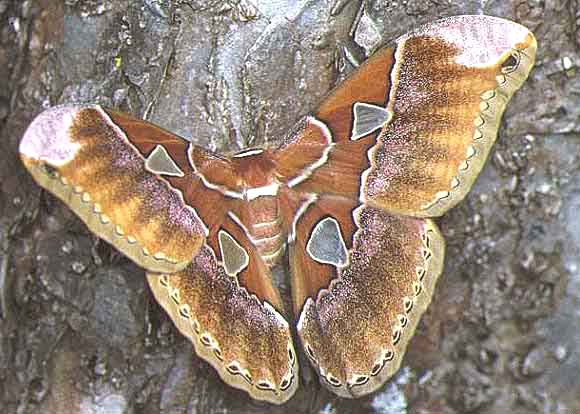
Rothschildia orizaba meridana (female) courtesy of Bernhard Jost.
TAXONOMY:Superfamily: Bombycoidea, Latreille, 1802 |
DISTRIBUTION:
Rothschildia orizaba (wingspan 14-16 cm), having a number of subspecies, flies throughout Mexico through Central America and in South America southward to Peru, Bolivia and Chile on the west side of the Andes.
Rothschildia orizaba meridana flies in Merida, Venezuela.
This species is distinguished from R. o. equatorialis by the more even ground colour and less evenly dentate postmedial lines of R. o. meridana. Examination of genitalia is frequently required to distinguish this species from aurota.
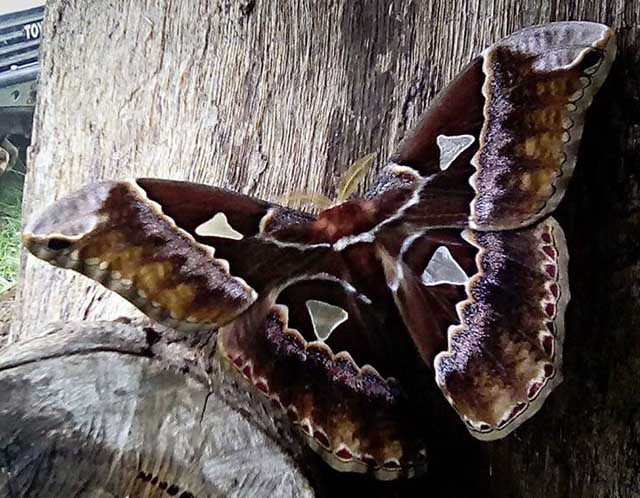
Rothschildia orizaba meridana male, Merida, Venezuela,
March 26, 2017, courtesy of Yhosmer Alberto Ranguel Gonzalez, tentative id by Bill Oehlke.
Possibly this is R. aurota aurobizmeridensis.
FLIGHT TIMES AND PREFERRED FOOD PLANTS:
Because of the wide range, the preferred hostplants will vary with the area from which they are native.
Moths are on the wing during most of the "wet season" throughout their range with several broods occuring. Pepper tree, privet and cherry are recommended host plants for those who wish to rear this subspecies.
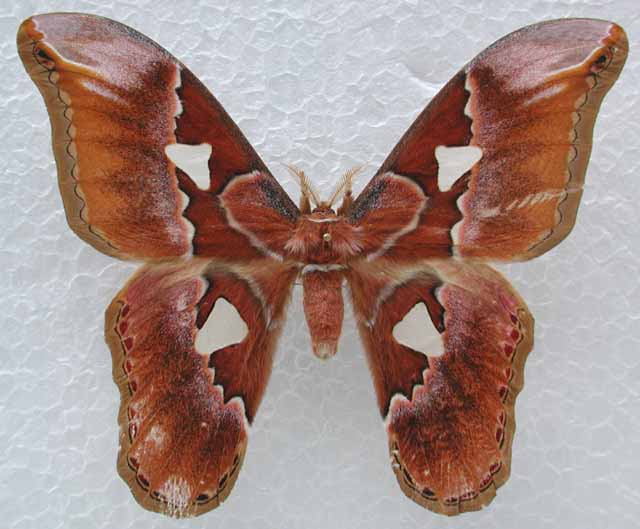
Rothschildia orizaba meridana (male), Venezuela, courtesy of Eric van Schayck.
ECLOSION, SCENTING AND MATING:
Females attract the smaller, night-flying males with an airbourne pheromone.
The wings of the males are more angled.
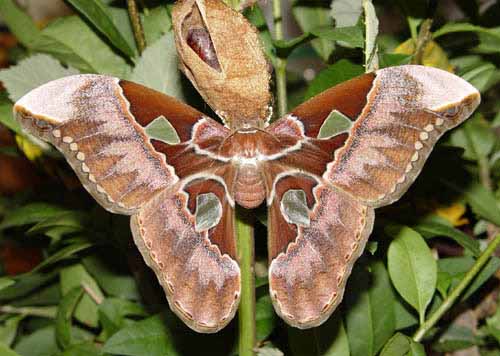
Rothschildia orizaba meridana female, copyright Martin Jagelka.
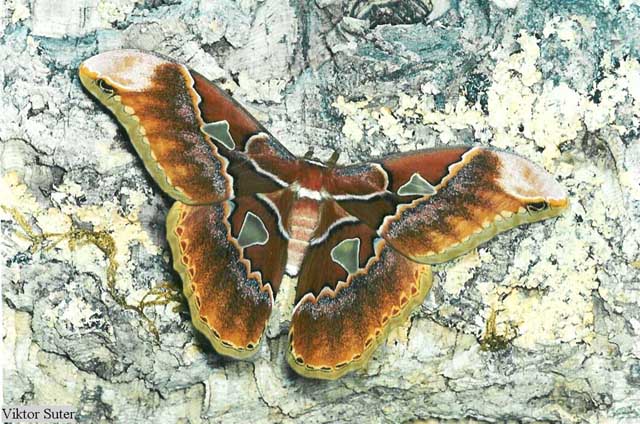
Rothschildia orizaba meridana (male), Venezuela,
courtesy of Bernhard Wenczel and Viktor Suter.
EGGS, LARVAE, COCOONS, AND PUPAE:I suspect cherry and privet would serve well as larval hosts. Larval image courtesy of Bernhard Wenczel. | 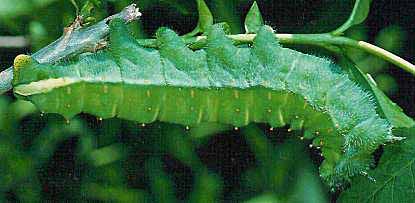 |
Larval Food Plants
It is hoped that this alphabetical listing followed by the common name of the foodplant will prove useful. The list is not exhaustive. Experimenting with closely related foodplants is worthwhile.
Return to Main Saturniidae Index
Return to Rothschildia Index
The pronunciation of scientific names is troublesome for many. The "suggestion" at the top of the page is merely a suggestion.
There are many collectors from different countries whose intonations and accents would be different.
The species name, orizaba, is the name of a large city in the Mexican state of Veracruz.
The subspecies name, meridana, is for the distribution near Merida, Venezuela.